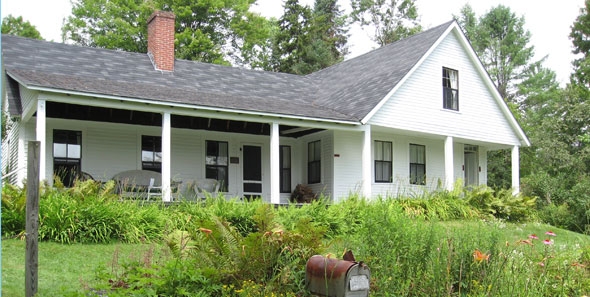[[{“type”:“media”,“view_mode”:“media_large”,“fid”:null,“attributes”:{“class”:“media-image alignleft size-full wp-image-4848”,“typeof”:“foaf:Image”,“style”:“”,“width”:“75”,“height”:“75”,“alt”:“Dartmouth Shield”}}]]Dartmouth College Press Release Contact the Office of Public Affairs 603-646-3661 • 603-646-2850 (fax)office.of.public.affairs@dartmouth.edu
Although Robert Frost matriculated as a Dartmouth student in 1892, he soon left the College for other pursuits and had to wait until 1951, when Dartmouth awarded him an honorary degree, to receive his diploma. Now, thanks to a new agreement between Dartmouth and The Frost Place in Franconia, N.H., the College’s connection to the poet and his legacy is being strengthened and carried forward.

Beginning January 1, 2012, Dartmouth will support the Poet in Residence Program at The Frost Place, a nonprofit educational center for poetry and the arts located at Frost’s former residence in Franconia, N.H. The Dartmouth Resident Program at The Frost Place will run through 2016 and provide residencies for early career poets.
“We are delighted to strengthen our partnership with The Frost Place in support of the next generation of American poets,” said Provost Carol Folt. “This agreement honors the historic ties between Robert Frost and Dartmouth as well as the enduring ability of poetry to illuminate and challenge our society.”
Robert Frost entered the College as a member of the Class of 1896, but left within several months to marry and pursue farming and poetry. He did return, however, lecturing often to students as the Ticknor Fellow (1943 to 1949) and participating in the Great Issues program (1949 to 1962). Dartmouth College Library’s Robert Frost Collection is one of the largest and most important in the world.
The standard edition of the poet’s verse, The Poetry of Robert Frost (first published in 1969), also has a Dartmouth connection. The late Edward Connery Lathem ’51, a librarian, editor, long-time Dartmouth administrative officer, and a close personal friend of Frost, edited the volume. Lathem was also editor or co-editor of several other Frost volumes, among them Selected Prose of Robert Frost (1966), Interviews with Robert Frost (1966), Robert Frost: Poetry and Prose (1972), North of Boston Poems (1977), and Prose Jottings of Robert Frost (1982).
The 8-acre Frost Place property was Robert Frost’s own farm from 1915 to 1920. It was there that he wrote some of his most enduring poems, including ”The Mending Wall,“ ”The Road Not Taken,“ and ”The Gift Outright,“ which he read at the inauguration of President John F. Kennedy in 1961.
”The Poet in Residence Program supports working poets, providing them the space and dedicated time to devote to their craft and placing them in the home of Robert Frost,” says The Frost Place Executive Director Maudelle Driskell. “We are grateful for Dartmouth College’s support, which will have a positive impact on the lives of the talented poets that are chosen to participate."
The Poet in Residence program is for poets who are “at an artistic and personal crossroads, comparable to that faced by Robert Frost when he moved to Franconia in 1915, when he was not yet known to a broad public,” according to The Frost Place. Resident poets live at the property for two months in the summer and deliver public readings.
Robert Hass, United States poet laureate (1995 to 1997) is among the poets who have been recognized by the residency program since its founding in 1977. Additionally, The Frost Place houses a museum and sponsors a Festival and Conference on Poetry and a Frost Day Celebration each year.